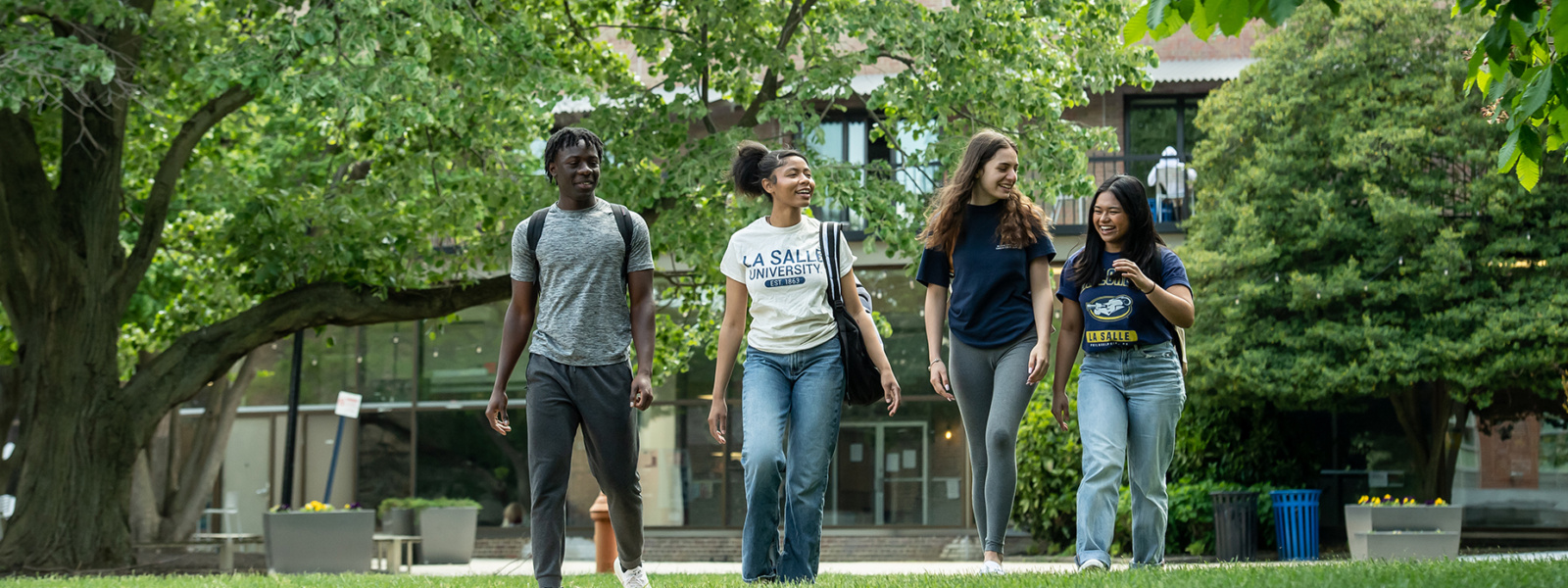La Salle University

Education: 5-Year (B.A./M.A.)
- Accelerated Bachelor's/Master's
- 5-year, On Campus
What You’ll learn
This program builds on our successful undergraduate education major by offering several options leading to a Master of Arts degree in Education.
The program prepares 21st century educators through project-based, problem-based service learning and community engagement grounded in Lasallian values. The program offers unique alternatives to the traditional school-as-factory model that views each child as an individual learner with needs that often can’t be met through an industrialized approach to education. La Salle-educated teachers command a comprehensive understanding of the child or adolescent as a very individual learner. They know how to keep the differences of their students in mind, and they know how to develop state-of-the-art instruction that works in the “real world” of the school.
Why Study Education at La Salle?
La Salle-educated teachers are grounded in analytic techniques that promote their ability to analyze the meaning and effects of educational institutions, develop critical understanding of educational thought and practice, and provide resources for the development of educational policy-making skills.
This 5-year program allows students to dive deeper into these techniques, creating a better and more complete educator.
Our 5th year students are also able to use up to three undergraduate courses (9 credit hours) towards their Master’s, enabling them to finish with just one additional year of school.
Highlighted Courses
EDC 503 – Cognitive, Social, and Emotional Development
This course provides an overview of the physical, cognitive, psychosocial, emotional, and moral development for humans across the lifespan. Participants will explore theories of learning and development as they pertain to the individual in the home, in schools, the community, at work, individually, with families and with peers. Attention will be paid to both normative and nonnormative developmental trends.
EDC 510 – Human Exceptionalities
This course introduces human exceptionalities and surveys the psychological, medical, legal, and social forces influencing the provision of services for exceptional people. Clarifies perceptions of exceptionalities, defines and describes key terms and concepts, and identifies major trends that affect the scope and nature of service to exceptional people.
EDC 602 – The Teacher and Technology
This course helps teachers incorporate modern technologies of instruction into their classroom practices. Includes visual literacy and design principles, videography, the Internet, videodisc technology, cable in classroom, trends in educational computing, and multimedia. Emphasizes the impact of those technologies on human growth and development.
Meet the Faculty
Designed to enhance classroom instruction, all courses are taught by veteran educators with years of experience in elementary, middle school, and secondary settings.
Career Opportunities
Graduates with a master’s degree in education have explored the following careers:
- District Administrator
- Corporate Trainer
- Education Policy Analyst
- Higher Education
- Nonprofit Educational Director
- Childcare Director
- School Counselor
- Career Counselor
Accreditation
La Salle University’s program of study is accredited by the Pennsylvania Department of Education.